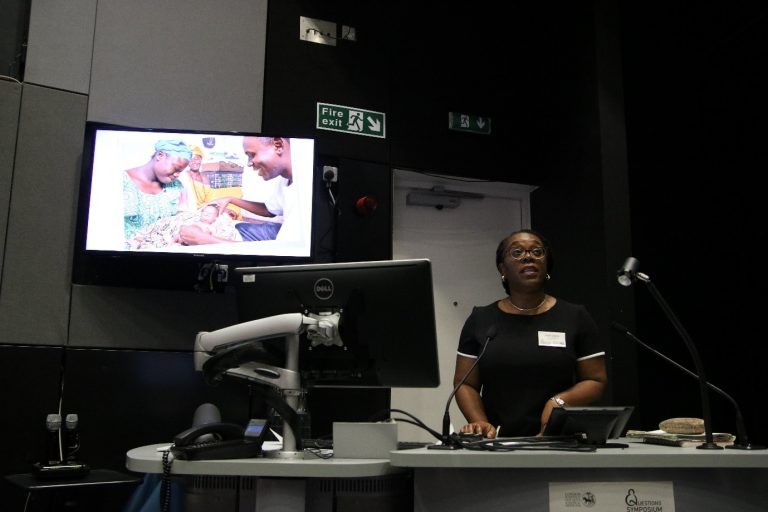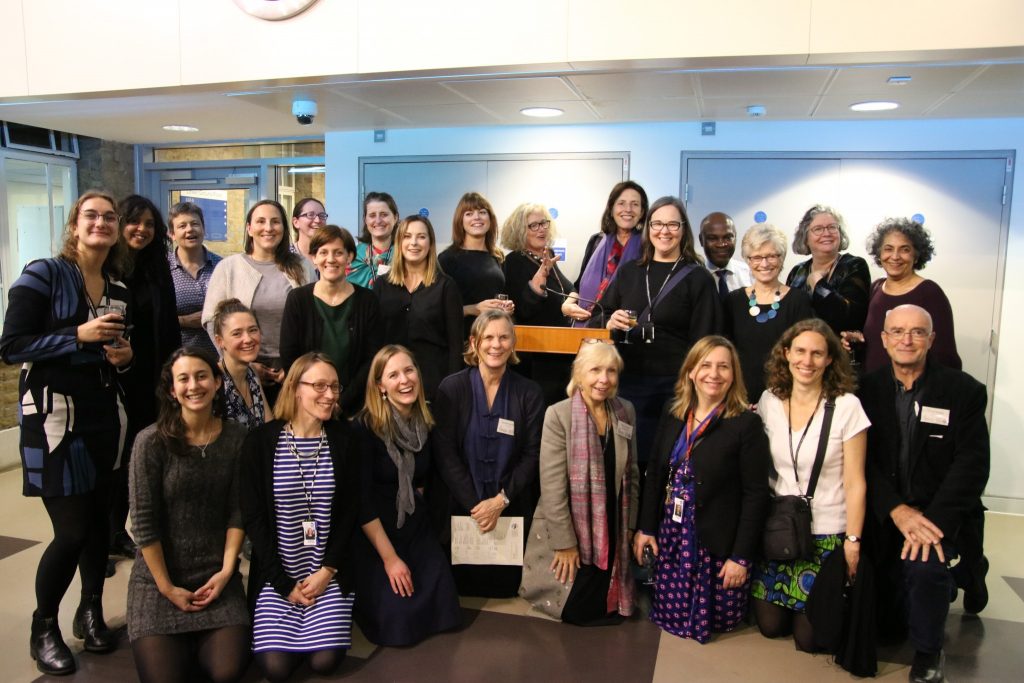The London School of Hygiene and Tropical Medicine’s MARCH Centre held a symposium to celebrate 30 years of maternal and newborn health (MNH) research at the School. Entitled the Questions Symposium, the event aimed to examine questions on the rationale, methods and impact of our past and present research, and the challenges to be faced in the future.
The program encompassed a diverse range of activities, including more traditional keynote and panel sessions, alongside a play, a debate on the relative value of implementation research versus basic science and epidemiology (which generated some interesting discussion online) and a series of short presentations in the form of a PechaKucha-style session and a speaker’s corner during the reception.
Some of the sessions related specifically to newborn health, for example Dr Hannah Blencowe’s talk about perinatal estimates of morbidity and mortality and the work of the School in putting stillbirth on the global health agenda. But an overall message of the day – noted at the beginning and at the end in Professor Wendy Graham’s words, was that you cannot separate the mother from the newborn: a woman will not be ‘healthy’ (according to the WHO’s definition) without a healthy newborn to care for, and nor will the newborn be healthy without its mother’s care.
This message came through in a number of presentations, which emphasized the life course approach, and how many interventions that target maternal health will also reduce stillbirths and newborn complications. Dr Allisyn Moran’s keynote address highlighted the WHO strategies that target these two groups together. Another example is Dr Uduak Okomo, who spoke about neonatal infections, and acquisition pathways, such as the role of maternal colonization. A paediatrician and epidemiologist in childhood infectious disease, Uduak focused on this link in her PhD, which was based in the Gambia. Similarly, Dr Giorgia Gon’s presentation surrounded healthcare acquired infections in low- and middle-income countries, and how initiatives to educate health care staff about hygiene in birth facilities, for example, BASICS, would improve health of both mothers and their babies.
Another theme that emerged was the importance of considering the diversity in this field. This includes diversity of context – for example conflict settings in which women and children are particularly vulnerable, which was a focus of the play – and diversity of women’s needs – for example those with disabilities, as highlighted by Professor Tom Shakespeare.
One of the final short presentations was from Dr Richard Horton, who spoke with passion about the urgency for action in the field of global MNH, which relates to his recent Lancet comment piece on ‘the false narrative of “tremendous progress”’ in this field.
Undoubtedly, there is still much progress to be made in MNH to achieve the Sustainable Development Goals, and there are many questions still unanswered and new ones emerging. More work is needed, and we must remember that you can’t have the N without the M, nor the M without the N.
The event was live streamed and recorded:

